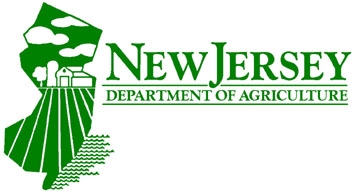Home > News > Press Releases > 2011 > AN OPEN LETTER TO HORSE OWNERS, HORSE BUYERS AND HORSE LOVERS IN NEW JERSEY
AN OPEN LETTER TO HORSE OWNERS, HORSE BUYERS AND HORSE LOVERS IN NEW JERSEY
From Douglas H. Fisher, N.J. Secretary of Agriculture
For Immediate Release: August 5, 2011
Contact: Jeff Beach
(609) 439-2038
Earlier this year, an outbreak of equine herpes swept across nearly a dozen Western and Midwestern states after horses from those states had gathered in one spot for a national show, became exposed to the illness, and then returned home.
More than 1,500 horses on 242 premises were reportedly exposed to EHV-1 (either at the national event or through contact with horses exposed at the event). Thirteen horses either died or were euthanized. Twenty-eight cases of EHV-1 infection and 26 cases of EHM were confirmed. Incidents like this make it painfully clear how quickly a disease outbreak can spread among horses and how tragic the consequences can be.
At the heart of New Jersey’s laws regarding the movement of horses throughout the state, the importation of horses into New Jersey from other states, and the sale of horses in New Jersey is preventing, as much as possible, the outbreak of serious, contagious diseases. These laws are intended to prevent a tragic outbreak of disease among horses, and the costs, both monetary and emotional, that it would impose upon New Jersey horse owners.
These laws are for the protection of horses, and protections designed to ensure a safe outcome are no protection at all if they are not used or enforced. These protections provide assurances to both the equine industry as a whole and the individual horse owner alike that the state is safeguarding horse health.
Anyone transporting horses, for sale or other purpose, even if it is from one point in the state to another, MUST have a negative Coggins test. In addition, anyone bringing a horse in from outside the state for sale must have the negative Coggins test AND a certificate of veterinary inspection.
Together, these steps would cost those bringing horses into New Jersey for sale a total of less than $100 per horse. This protection is relatively small in cost when compared to the hundreds or thousands of dollars it costs to buy and keep a horse. It also helps greatly in avoiding the costs, both financial and emotional, of quarantining, treating, or worse yet euthanizing horses whose health could have otherwise been protected.
There are instances to which meeting these health requirements do not apply. While obviously not the desired outcome of the transporting of a horse, those instances specifically excluded from the rules are: importing the horse for immediate slaughter; importing the horse for research; or if the horse is to be immediately returned to its home state.
I share the compassionate concern for horses and their rescue. Responsible livestock dealers, animal owners and animal lovers are as concerned as we are with the health of horses in New Jersey and elsewhere, and we hope the number of horses without homes will decrease.
These rules exist for a reason - the horses. Horses serve us well and give us pleasure and enjoyment. But horses travel frequently – for shows, races, breeding, etc. They come into contact with many other horses, and if New Jersey lets its guard down and “looks the other way,” we would be complicit in endangering them.
To invite the outbreak of vicious and even deadly diseases in our horse population would be the most inhumane act of all.



